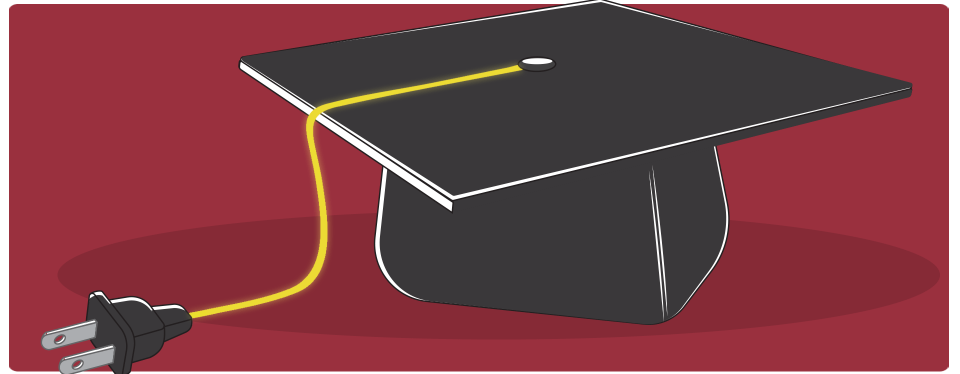If you are a working adult who has dreamed of a college degree, you will be thrilled to know that colleges are tailoring programs just for you. But you should also understand the trends that are driving these changes, and why it is so important to take advantage of them.
Today, a small number of forward-thinking colleges and universities are creating online courses and grading systems designed for the working adult student. They’re moving in response to statistics that indicate the growing need for advanced degrees in the workforce.
“Research shows that by the year 2018, 63 percent of jobs will require some sort of post-secondary education,” says Aaron Brower, Interim Chancellor for the University of Wisconsin Colleges and Wisconsin-Extension.
Compare that to the present day, where 38 percent of jobs nationwide require post-secondary education. The increasing educational requirements will specifically affect working adults, which is why institutions like the University of Wisconsin are rolling out new approaches.
More Skills Required, More People Attending College
To explain the growing need for a degree, Brower offered up the example of a welder.
Ten years ago, a welder was trained how to weld, then donned a helmet and went to work. Today, welders operate much more than a torch. Now they sit at a computer, programming precision welds in an endeavor that combines system engineering, metallurgy, and other advanced skills.
Similar advanced skillsets have emerged in advanced manufacturing, IT, healthcare and business. Tomorrow’s workplace will demand more from its workforce, and there will also be more people college-ready – and eager to acquire those skills – than ever before.
Brower notes that soon, nearly 70 percent of the population will be seeking a post-secondary education in the United States. In the mid-70s, only 40 percent of the population went to the college. Pre-GI bill (1944), it was 8 to 10 percent.
“The percentage is skyrocketing,” Brower says.
Perhaps the biggest indication of the changing face of college students is that 85 percent of these students will be “nontraditional students.” These are older, adult students – over 25 years of age, working full time and often with college credit earned from a variety of college experiences.
“They are becoming the mainstream of people seeking some sort of post-secondary education,” Brower explains.
The influx of new students is prompting educational institutions to adapt. Rather than forcing this unique population into their semester-by-semester systems, astute colleges are figuring out ways to work education around their students’ work, families, and busy lives.
This includes creating online degree programs, and moving to competency-based curricula. With competency-based degree programs, students can test out of subject areas they have already mastered in the workplace and accelerate their time to graduation. Getting a degree faster can save students thousands in tuition.
Brower believes more schools will shift to this model, but at the moment, only a handful of colleges offer competency-based learning programs. The task of converting traditional curricula into competency-based education requires tremendous resources. “It’s a very big undertaking,” Brower says.
Get a UW Flexible Option Degree Guide
Download an introductory guide (PDF) to the self-paced, competency-based UW Flexible Option programs, including details about costs, admission requirements, and more.
Why Adult Students Need to Take Action Now
For an adult student who has always wanted to return to school, these new developments are good news. However, the onus is now on prospective students to take advantage of these changes in higher education, as the way companies hire is also about to change.
As schools become more adept at measuring students’ true competencies, employers will want to see that information reflected on transcripts. They will become far more selective of the people they hire and promote.
What will an advanced degree offer? Beyond essential technical skills such as those in the welding example above, an advanced degree will help students:
- Communicate verbally and in writing
- Engage in collaborative problem solving
- Employ critical thinking and distinguish quality data
- Develop a sense of ethics
These are the cornerstones of a liberal-arts education. It only makes sense that as colleges flex to meet the needs of a highly technical world, its students will be challenged to think and act as post-secondary graduates as well.
To deliver this unique blend of liberal arts education and advanced technical skills, the University of Wisconsin System integrates its current faculty, oversight and accreditation to create an entirely new option geared to meet the evolving trend.
“We are the only major public system of institutions to adapt this new competency-based model,” Brower notes. “Others are watching us with great interest.”
The trend toward more nontraditional students is clear, and it has compelled institutions such as the University of Wisconsin to act with a sense of urgency. Considering how quickly the workplace is changing, astute workers will need to do the same.

